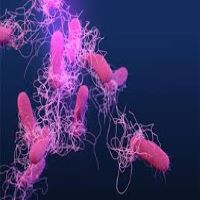Salmonella Infection: A Bacterial Disease
Salmonella infection (Salmonellosis) is a common bacterial disease that affects the intestinal tract and is the most frequently reported cause of food-related illness in the United States. Salmonella infection is officially called as salmonellosis.
This bacterial disease Salmonella, typically live in animal and human intestines and are shed through feces. Humans become infected through contaminated water or food which accidentally they transfer from their hands to mouth. If people get Salmonella on their hands or clothes, they can spread the bacteria to other people, objects, and surfaces which results in spreading of the said disease from one person to another.
Symptoms of Salmonella:
Salmonella infections can be classified as stomach flu (gastroenteritis). Symptoms in people start within 6 hours to 6 days after ingesting the bacteria. The illness usually lasts 4 to 7 days, and most people recover without treatment. Possible signs and symptoms are as under:
- Nausea
- Vomiting
- Abdominal cramps
- Diarrhea
- Fever
- Chills
- Headache
- Blood in the stool
A few varieties of salmonella bacteria result in typhoid fever and become a deadly disease, that is more common in developing countries.
Salmonella Infection Causes:
Salmonella bacteria live in the intestines of people, animals and birds. Commonly infected foods include:
- Raw meat, poultry and seafood: Feces may get onto raw meat and poultry during the butchering process. Seafood may be contaminated if harvested from contaminated water.
- Raw eggs: While an egg’s shell may seem to be a perfect barrier to contamination, some infected chickens produce eggs that contain salmonella before the shell is even formed.
- Fruits and vegetables: Some fresh produce, particularly imported varieties, may be hydrated in the field or washed during processing with water contaminated with salmonella. Contamination also can occur in the kitchen, when juices from raw meat and poultry come into contact with uncooked foods, such as salads.
The Food and Drug Administration of United State also indicates that some salmonella outbreaks have been traced to contaminants in spices. The agency is seeking ways to increase the safety of spices.
How to Prevent Your Self from Salmonella Infection ?:
Preventive methods are especially important while preparing food or providing care for infants, older adults and people with weakened immune systems. Be sure to cook food thoroughly and refrigerate or freeze food properly.
Wash your hands: Washing our hands thoroughly can help us to prevent the transfer of salmonella bacteria to our mouth or to any food we are preparing. We should wash our hands after :
- Using the toilet
- Changing a diaper
- Handle raw meat or poultry
- Cleaning up pet feces
- Touching reptiles or birds
- Keep things separate
To prevent cross-contamination:
- Store raw meat, poultry and seafood away from other foods in refrigerator
- Never place cooked food on an unwashed plate that previously held raw meat
- Avoid eating raw eggs
Red Onion grown in California has been traced as the potential source of a recent Salmonella outbreak, resulting more than 500 people in USA and Canada got infected, as per health officials said.
Please share your thoughts and comments on this
